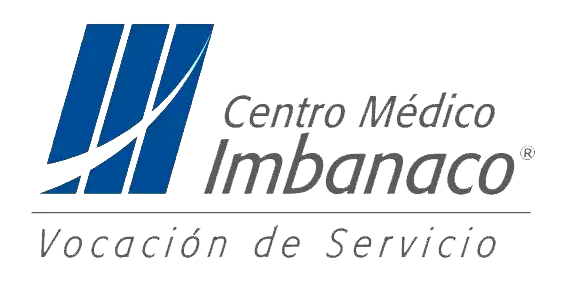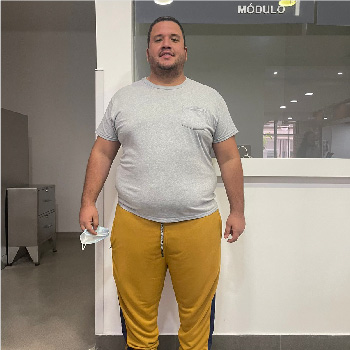- A surgical procedure that combines gastric restriction and a reduction in absorption to address obesity.
- Effective in correcting obesity-related diseases such as diabetes, dyslipidemia, and sleep apnea.
- High effectiveness in weight loss and a low probability of long-term weight regain.
- Indicated for patients who need to lose 40 kilograms or more.
WHAT IS GASTRIC BYPASS?
Gastric bypass surgery involves making the stomach smaller by creating a small pouch to restrict food intake and rerouting a segment of the small intestine to decrease the absorption of harmful nutrients. This procedure aims to achieve:
- Feeling full with less food.
- Absorbing fewer calories.
- Improvements in health issues related to excess weight.
- Losing 60 to 80 percent of excess weight in the first year.


HOW IS GASTRIC BYPASS PERFORMED?
Gastric bypass is performed using laparoscopy or minimally invasive surgery. This involves making 5 to 6 small incisions in the abdomen through which instruments such as a video camera and surgical tools are inserted. The surgery lasts approximately 2 hours and requires 2 days of hospitalization for recovery.
- The stomach is stapled and divided to create a small pouch at the top of the stomach, roughly the size of a golf ball.
- The small intestine is cut and stapled to the pouch, resulting in weight loss.
- In the first three months, you can lose up to one-third of excess weight, with many reaching their peak weight loss at 1 or 2 years.
Long-term results are impressive, but healthy habits must be maintained to help sustain and enhance weight loss. It’s important to continue follow-up care after gastric bypass surgery, as some individuals may not adhere to it over time. Gastric bypass is the procedure with the best weight loss outcomes compared to other bariatric surgeries. Patients who follow their doctor’s advice, exercise regularly, and have proper eating habits can lose even more weight, while those who don’t follow recommendations may lose less weight. Once you have reached your goal or ideal weight, it is recommended to visit your doctor at least once a year.


HEALTH BENEFITS
Most people who undergo gastric bypass surgery can significantly improve or even resolve health issues resulting from obesity, such as:
- Type 2 diabetes.
- Hypertension.
- Dyslipidemia (cholesterol and triglycerides).
- Cardiovascular diseases.
- Joint diseases.
- Sleep apnea.
- Migraines.
- Improved quality of life.
- Metabolic syndrome.
- Asthma.
- Non-alcoholic fatty liver.
- Depression.
OTHER BENEFITS OF GASTRIC BYPASS
Gastric bypass is considered the gold standard for some benefits, including:
- You can lose up to 70% of your excess weight in the first 18 months.
- You won’t be able to consume large meals.
- You won’t be able to eat sugary and/or carbohydrate-rich foods.
- You will absorb fewer calories than you consume.
- Hormones will improve due to weight loss; testosterone may increase, and metabolism may improve.
- Long-term success of the surgery. Studies show that 90% of people who undergo a bypass can maintain at least 50% of the lost weight.

Presenta un índice de masa corporal (IMC) de 45 o más.
Presenta un índice de menos de 40, pero además presenta problemas de salud relacionados al exceso de peso.
El cirujano le podrá recomendar la mejor opción dependiendo de cada persona.
The body mass index allows you to determine the degree of obesity based on weight and height. It is calculated by dividing weight in pounds (lb) by height in meters squared (m)2 and is applicable to both sexes.
Address: Calle 25 Norte # 2 N -57 Torre Consultorios – Consult. 707
Clinica De Los Remedios- Cali, Colombia
Number: +57 318 6899183
Manga Gástrica
Estoy feliz de ver los cambios físicos que ha tenido mi cuerpo y nada le gana más a sentirse bien con uno mismo. falta camino por recorrer pero estoy feliz como voy. mil gracias a ustedes por su amor en el proceso. en atención no les doy un 5 les doy un 100 desde el doctor, anestesiólogo, equipo, hospital. No me arrepiento de haberlos elegido.
• Endoscopic procedure, no need for invasive surgery.
• Usually performed on an outpatient basis, without requiring hospitalization.
• The device is temporary and is typically removed endoscopically after one year.
• Indicated for patients looking to lose between 10 and 20 kilograms.
• A brief and highly safe surgical procedure.
• Patients experience a significant improvement in their quality of life after surgery.
• High effectiveness in weight loss and long-term maintenance, ideal for patients who need to lose between 20 and 40 kilograms.
• A surgical procedure that combines gastric restriction and decreased absorption to address obesity.
• Effective in correcting obesity-related diseases such as diabetes, dyslipidemia, and sleep apnea.
• High effectiveness in weight loss and a low probability of long-term weight regain.
• Indicated for patients who need to lose 40 or more kilograms.
• What procedure is best for my case?.
• Comparative procedure table.
• Calculate your BMI.
• Surgery Package Details.


















